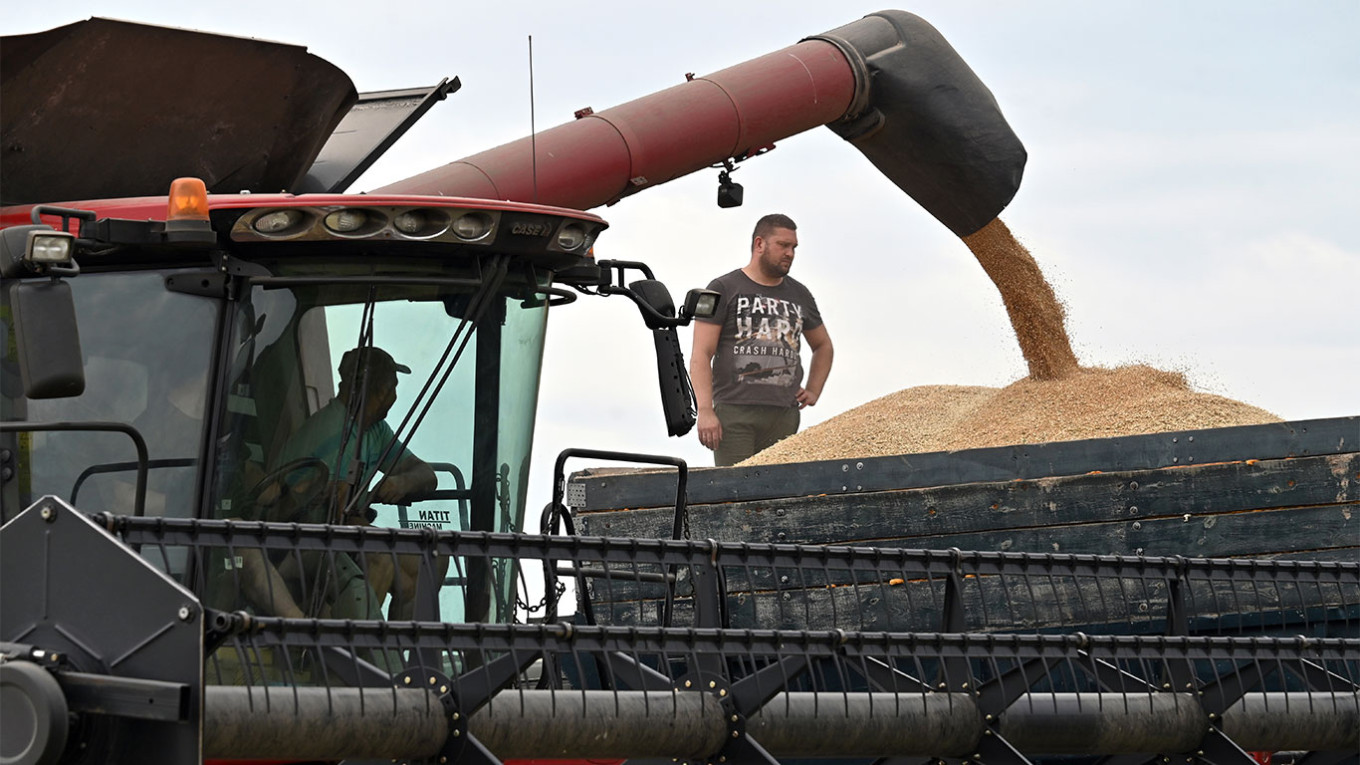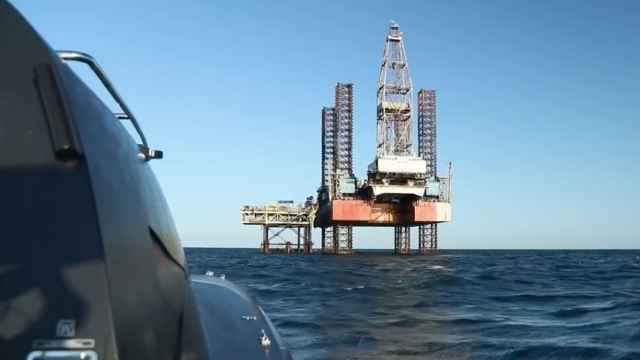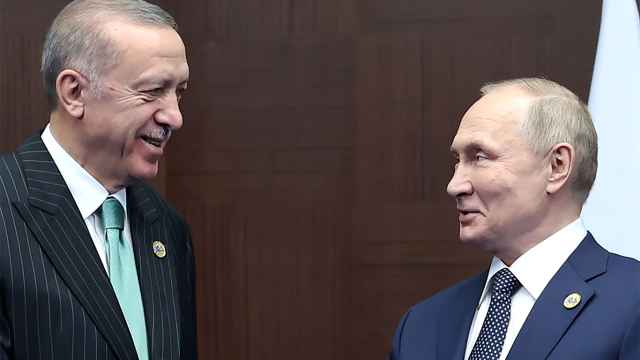On July 17, Russia announced that it would no longer uphold the parameters of the Black Sea grain deal, organized between Russia, the United Nations and Turkey on one side, and Ukraine, the UN and Turkey on the other.
Within 48 hours of the announcement, Russia launched intensified air raid attacks on Ukrainian ports, Black Sea shipping infrastructure, seaside cities and cultural landmarks such as Orthodox churches and Odesa’s historical city center. In these renewed bombings of Ukrainian cities, some of the most destructive and systematic in the past six months, dozens of civilians have been killed and many more injured.
Unfortunately for Ukrainians and much of the world, the shelling of Ukraine’s food infrastructure brings with it myriad risks beyond the repeating horrors of Russia’s war crimes.
Until now, Russia’s invasion of and attacks on Russia were contained, for the most part, within the borders of Ukraine. Most of the world has watched on in horror for 18 months as Russia has pummelled Ukraine’s cities and invaded vast Ukrainian territories.
Yet beyond the increase in oil and gas prices and the horrifying images of destruction, the world has not necessarily felt the effects of Russia’s actions. Russia’s secession from the grain deal has the potential to change that for the worst.
First, Russia’s threats that it will destroy all ships attempting to enter Ukraine’s waters in the Black Sea on the grounds that they could be carrying weapons combined with renewed shelling of the Black Sea region risks a direct escalation of the war to other parties, including NATO.
As the near-daily attacks on Ukraine’s port infrastructure — one of its economic lifelines — continue, Ukraine is likely to escalate its response against Russia, Russia’s civilian and war infrastructure on Russian-occupied Crimea, Moscow, and potentially Russia’s port infrastructure.
This only implies that Ukraine’s response, both proportional and equitable, will have a negative effect on Russians and Russia’s Black Sea territories. In fact, increased drone attacks and lobbing missiles across the Black Sea are unlikely to benefit either party, whereas it only increases the likelihood of an international crisis with other Black Sea states and risks, such as Romania or Turkey, or the fallout from the unintended destruction of non-military ships.
Russia’s July 24 bombing of Ukrainian grain infrastructure in Reni, just meters away from NATO member Romania, has the alliance concerned over further escalation. Romanian President Klaus Iohannes has written that the “recent escalation poses serious risks to the security in the Black Sea.” The transport corridor under the former deal had assuaged these risks.
Second, repeated attacks on Ukrainian ports such as Odesa, but also on the Danube shipment facilities, have caused a rapid increase in wheat and corn prices over the past week as international markets react to widespread fears of food shortages. Wheat and corn futures have jumped 8.5% and 4.7% respectively in recent days; by the end of the year, the IMF predicts grain price increases of up to 15% by the end of the year. Russia’s drone and missile strikes on Ukraine’s grain export infrastructure not only hurts Ukraine but carry with them wider and short- to medium-term negative impacts for much of the globe.
It appears that Russia is looking to make a profit from impeding Ukraine’s grain exports and access to international markets. Sadly, this is likely to have some success. Russia’s expected record-breaking grain exports in 2023, combined with the increase in international grain prices, implies that rendering Ukraine’s export capabilities useless is good for business — both for Russian farmers and the Russian state.
Third, in withdrawing from the grain deal and preventing ships from entering and leaving Ukraine’s sovereign waters, Russia is threatening the world with the risk of global hunger. As one of the world’s largest wheat and corn exporters, and total exports reaching almost 50 million tons in 2022, the loss of Ukrainian exports will undoubtedly harm world food supplies and markets. Ukraine exports much of its grains to China, Africa and South Asia, and millions of tons of missing supplies in 2023 will have a noticeable effect, increasing the likelihood of hunger risks and price hikes in much of the global south.
United Nations Secretary-General António Guterres, in lamenting Russia’s withdrawal from the agreement that saw 30 million tons of grain leave Ukraine via the Black Sea over the past year, warned that the move will “strike a blow to people in need everywhere.”
It is unlikely that Russia’s efforts will make up for these deficits.
Finally, in making guarantees at this week’s Russia-Africa summit in St. Petersburg that Russia will make up for — and subsidize or donate — grain lost from Ukrainian exports to Africa, Russia is looking to strengthen its foothold in Africa.
On the opening day of the Russia-Africa Summit, Putin promised a number of African countries, including Mali and the Central African Republic, between 25,000 and 50,000 tons in free grain supplies.
As Andrei Sizov, a leading Russian agriculture expert, explained on Twitter, however, Africa’s total grain imports are between 80 and 90 million metric tons. Putin is willing to supply only 5 million metric tons, 5.6% to 6.25% of the required total.
Putin’s offer, of course, is related to Russian access to Africa’s diverse markets, but it must not be forgotten that Russia is pushing a narrative of geopolitical multipolarity, seeking to make up for what it erroneously argues to be the failures of the West and Ukraine. It is unclear if Russia will have any success, however. Though in need of immediate solutions for food imports, African leaders are likely to read between the lines. Putin’s geopolitical aspirations are one thing, but a stable and dependable trading partner — one who is not likely to cut its competitors off at the knees and manipulate markets — is another. In the end, Africa is likely to suffer the harmful consequences of Russia’s actions.
For the time being, the Ukraine-Russia grain deal is dead in the water, making the Black Sea region and the world a more dangerous, and hungry, place. As the feasibility of Russia and Ukraine returning to the negotiating table decreases with each attack on Ukraine’s infrastructure and cities, creative solutions are urgently needed to bring Ukraine’s grain to international markets and prevent Russia from capitalizing on increased prices and decreased supplies. Amplified shipping through the Danube Canal on the Romanian border, as well as increased land transportation, can only act as a substitution for so much.
At the very least, NATO countries must increase their supplies of air defense systems to allow Ukraine to defend its Black Sea cities, grain products and port infrastructure, lest Russia lay to waste cities and goods crucial for the security and well-being of the planet.
With global hunger and Ukraine’s ability to finance its defense hanging in the balance, the collective West needs to act swiftly and send a clear message to Russia that a further escalation, international waters and NATO borders, and global food security are off-limits.
A Message from The Moscow Times:
Dear readers,
We are facing unprecedented challenges. Russia's Prosecutor General's Office has designated The Moscow Times as an "undesirable" organization, criminalizing our work and putting our staff at risk of prosecution. This follows our earlier unjust labeling as a "foreign agent."
These actions are direct attempts to silence independent journalism in Russia. The authorities claim our work "discredits the decisions of the Russian leadership." We see things differently: we strive to provide accurate, unbiased reporting on Russia.
We, the journalists of The Moscow Times, refuse to be silenced. But to continue our work, we need your help.
Your support, no matter how small, makes a world of difference. If you can, please support us monthly starting from just $2. It's quick to set up, and every contribution makes a significant impact.
By supporting The Moscow Times, you're defending open, independent journalism in the face of repression. Thank you for standing with us.
Remind me later.








